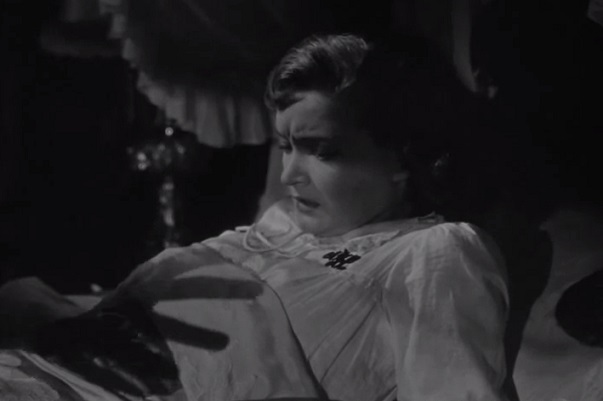There’s not a single bad film in the Criterion Channel’s Columbia Noir collection, but there are more than a few that I was surprised I hadn’t heard of. Like: My Name is Julia Ross, a gothic narrative that makes use of all the tropes even as it subtly undercuts them. Coming in at just over an hour, it’s a taut, entertaining story about a woman who finds herself locked in a nightmare that everyone insists is her real life.

Julia Ross (Nina Foch) has been looking for work for weeks when winds up at an employment agency for job that seems the perfect fit. Mrs. Hughes (Dame May Whitty) is looking for a live-in secretary to stay with her at her isolated Cornwall mansion. Her one requirement? That the young lady not have any connections to distract her. Julia agrees, but the next day, she awakens in an unfamiliar room in Cornwall. The Hughes family insists that she’s not Julia at all, but Marion, the wife of Mrs. Hughes’s son Ralph (George Macready), and that she’s been quite ill for some time.
Unlike many female gothic films and stories, My Name is Julia Ross immediately establishes a female protagonist with a strong sense of self. Even the title is an affirmation of Julia’s self-awareness—she insists that she’s not Marion, that her name is Julia Ross, and that she’s being held against her will. Nor does the film attempt to obfuscate her real identity—she’s always Julia, and the machinations of the family, while obscure, are always sinister. She’s initially preyed upon because she has no connections—“friendless,” without family or a husband or boyfriend who will come looking for her. The family believes that she will easily be manipulated, but their reliance on her lack of connections means that they fail to recognize what sort person she actually is.
Rather than waiting for happenstance to save her, Julia embarks on her own attempts to rescue herself, trying to flee, hiding in the back of cars, asking for help from anyone and everyone she comes across. The film’s tension stems not from whether or not Julia will ultimately believe the lies, but how she will manage to extricate herself from her situation. Far from a passive waif, she remains in control of herself throughout, reacting to her imprisonment naturally without ever becoming hysterical.
In another undercutting of the gothic structure, the film avoids making Ralph a figure of romance, doomed or not. The toxic, entitled masculinity Julia encounters endangers her, but it’s never presented as dangerously attractive—Julia never falls in love with the man trying to control her and, unlike Gaslight (to which this story bears some resemblance), the male villain is not rendered in intricate detail. Rather it is the women who enable him—his mother, who protects and controls him, and Mrs. Sparkes (Anita Sharp-Bolster), who works for them—who control the situation, and the biggest battle is not between Julia and Ralph but between Julia and Mrs. Hughes. Foch’s central performance and sparring with Whitty (always an enjoyable screen presence, and even more so when she’s a villain) highlights the film’s understanding of women as driving forces in their own story.
It’s a deft, surprising move from the film of this period, and one that elevates My Name is Julia Ross from a B-level Gaslight to something subtly transgressive, a story about a young woman who never doubts herself or her understanding of the world, and absolutely refuses to be gaslit.
My Name is Julia Ross is available to stream on the Criterion Channel.
FOLLOW US ON: FACEBOOK, TWITTER
WANT TO SUPPORT ORIGINAL CONTENT CREATED BY WOMEN? THEN CONSIDER SUPPORTING CITIZEN DAME ON PATREON!
Interested in contributing your writing (either pre-written or original) to Citizen Dame? Consider joining our guest contributor program
